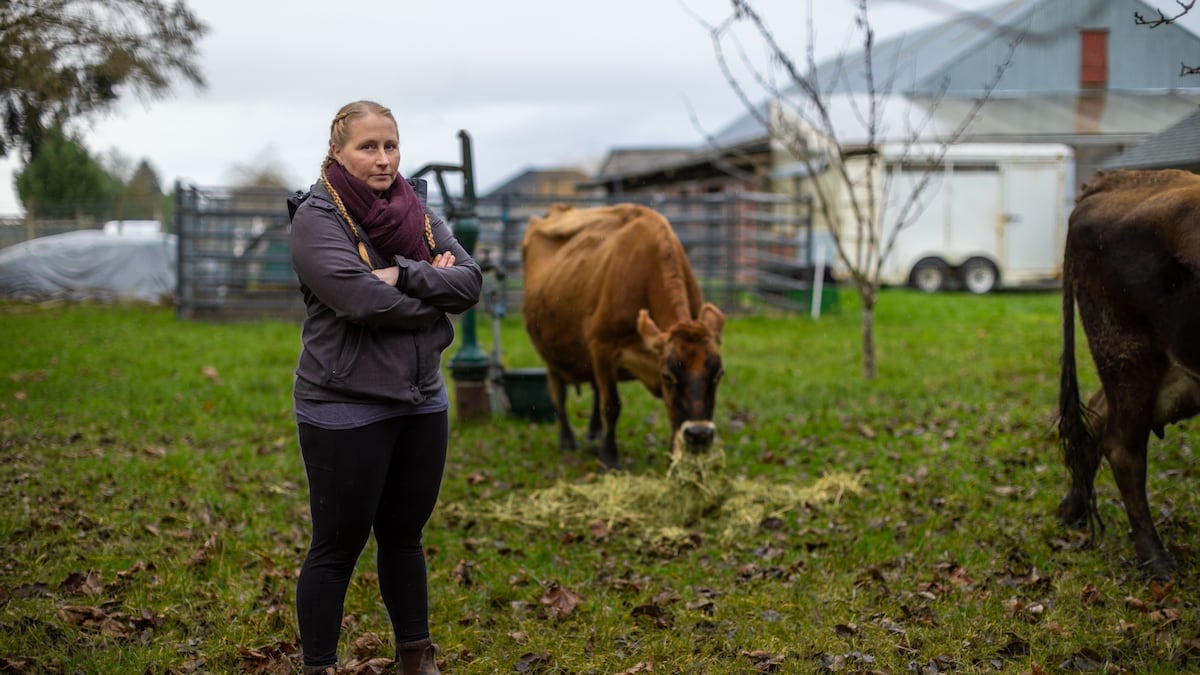Silver Supporter
Bronze Supporter
- Messages
- 2,186
- Reactions
- 3,783
Follow along with the video below to see how to install our site as a web app on your home screen.
Note: This feature may not be available in some browsers.
Like my grandpa used to say . . .
KFC Weve been douped.Nope
My guess is that the implication is that those on well water can be "assessed" to busing too much water if their garden is too big, or something along those lines. I need to go read the actual law to find out what is going on that is new.It's not surprising that governments would want to regulate private activities as commercial activities. The ATF is trying to do that with private gun sales. I am interested in how this might affect home gardens as the thread title implies and specifically what House or Senate Bill added these restrictions to Oregon Law?
No, were not allowed to actually know the actual law were trying to talk about here.I need to go read the actual law to find out what is going on that is new.
Ok, this is not a new law, it seems this is a new interpretation of an old law related to runoff. And it is not about home gardens, but it could be about home livestock. The new rule interpretation seems to be if you house any animals on a "prepared surface" that is a defacto commercial installation and subject to regulatory requirements for water runoff quality, i.e. you will need to implement all containment, collection and cleaning equipment regardless of if it is needed or not.No, were not allowed to actually know the actual law were trying to talk about here.
Lol.
So in other words . . .Ok, this is not a new law, it seems this is a new interpretation of an old law related to runoff. And it is not about home gardens, but it could be about home livestock. The new rule interpretation seems to be if you house any animals on a "prepared surface" that is a defacto commercial installation and subject to regulatory requirements for water runoff quality, i.e. you will need to implement all containment, collection and cleaning equipment regardless of if it is needed or not.
As the other link alluded to there is a lawsuit being brought by actual small scale commercial farms who do not produce enough runoff to be concerning, but I think the regulatory interpretation could be applied to decent sized personal operations too, if the owners put down mulch or house the animals on a driveway extension or even in a structure with a built floor of some kind. I see nothing in this new definition ("Agricultural Producer") that stipulates the final usage of the product (commercial or private). That distinction is found in the definition of "Farm" from the same section. So by interpreting these regulations to apply to "agricultural producers" instead of "farms" it expands the reach of the regulations to everyone, not just those engaged in commercial applications (or indeed in large scale commercial applications as originally intended).

No, the "new" CAFO regulations apply to any livestock animals, including chickens (potentially chickens in your back yard if you keep them on a "prepared surface"). It seems the state is mostly targeting small scale commercial producers, but it seems that some people with strictly personal use of the animals have been caught up in the kerfuffle too. This is definitely a thing going on right now, and it looks like they are just ramping this up. They will keep going on with enforcement until it all blows up in their face, then they will "step back" and "reassess" their actions with "new regulations" that "help small scale producers" with "lighter regulation" (while people forget that there was none just a few years prior). This seems to be the classic implementation of a "two steps forwards one step back" plan to implement a new regulatory regime without having to actually pass any new laws; just re-imagine old ones with a new twist.Could it be because they are selling raw milk to the public? Looking at the webpage for the dairy you purchase a share of the cow which allows you to receive milk. Pretty expensive milk by the way, a share of $104 entitles you to 1 gallon per week of milk. Looks like they may be trying to circumvent the law. Only farms with less than 3 cows are exempt from the law.
Whether the state should regulate the sale of raw milk in the first place is another issue!
Yeah, Washington State tried this a few years ago. Backlash was pretty sever & it died in the dust.Just ask the state who owns the rain from the sky and you'll find out how much you really own, LOL
Hmmmm... 1 gallon of milk/week is 52 gallons of milk per year. A $104 share makes that milk only $2/gallon. Seeing as how I spend upwards of $4 for only a half-gallon of milk, I think that $2/gallon is some pretty damned cheap milk. YMMV...Pretty expensive milk by the way, a share of $104 entitles you to 1 gallon per week of milk.
Exactly.Ok, this is not a new law, it seems this is a new interpretation of an old law related to runoff. And it is not about home gardens, but it could be about home livestock. The new rule interpretation seems to be if you house any animals on a "prepared surface" that is a defacto commercial installation and subject to regulatory requirements for water runoff quality, i.e. you will need to implement all containment, collection and cleaning equipment regardless of if it is needed or not.
As the other link alluded to there is a lawsuit being brought by actual small scale commercial farms who do not produce enough runoff to be concerning, but I think the regulatory interpretation could be applied to decent sized personal operations too, if the owners put down mulch or house the animals on a driveway extension or even in a structure with a built floor of some kind. I see nothing in this new definition ("Agricultural Producer") that stipulates the final usage of the product (commercial or private). That distinction is found in the definition of "Farm" from the same section. So by interpreting these regulations to apply to "agricultural producers" instead of "farms" it expands the reach of the regulations to everyone, not just those engaged in commercial applications (or indeed in large scale commercial applications as originally intended).
That's $104/month! Below is from their website.Hmmmm... 1 gallon of milk/week is 52 gallons of milk per year. A $104 share makes that milk only $2/gallon. Seeing as how I spend upwards of $4 for only a half-gallon of milk, I think that $2/gallon is some pretty damned cheap milk. YMMV...
